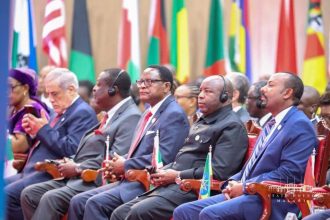Abuse of cdf stirs debate
Minister of Finance Sosten Gwengwe on Thursday rejected a proposal that Treasury should refund K130 million from the Constituency Development Fund (CDF), which was misallocated at M’mbelwa District Council.
The minister has since pushed the responsibility to the council itself.
Meanwhile, some stakeholders are demanding that the rolling out of the increased CDF should be put on hold until new guidelines adopted by Parliament are subjected to public scrutiny by key stakeholders in the decentralisation process.

Gwengwe was responding to a question in Parliament from Mzimba South member of Parliament (MP) Emmanuel Jere, who asked Treasury to consider refunding the money, arguing that a number of projects had stalled due to the misallocation.
According to an internal report, K130 million meant for CDF in the 2020/21 financial year was misallocated M’mbelwa District Council.
Gwengwe said the council has admitted misallocating the funds and has since been asked to refund the same using their own means.
The minister said the misallocated K130 million was part of K440 million allocated for 11 constituencies in Mzimba District.
Jere, who raised the question of refund, said most constituencies have been affected with this anomaly and there is need for speedy refund to complete stalled projects.
Other legislators also claimed that it was the same case in their constituencies where council officials abused CDF, calling on the minister to crack the whip on such officials instead of just transferring them to another district.
Earlier on the day, Parliament adopted new guidelines that will improve the management of CDF (which has been increased to K100 million, from K40 million) and Water Resources Fund (CDFWRF) to control abuse of the funds.
In the guidelines, there is an emphasis on strengthening procurement procedures to check on malpractices associated with CDF such as bloating prices and awarding of contracts without following procedures.
The new CDFWRF guidelines demand that all procurements should comply with the requirements of the Public Procurement and Disposal of Public Asset Act (2017) and its attendant Procurement Regulations (2020).
In an interview, Malawi Local Government Association (Malga) executive director Hadrod Mkandawire faulted the guidelines, saying the powers given to MPs in managing the funds weaken the role of councillors who are supposed to be custodians of local development.
He said it is worrying that the central government appears keen to kill local development structures, adding that problems dogging CDF have everything to do with MPs and not district councils as it is portrayed.
Said Mkandawire: “It is ward councillors who are supposed to be in the forefront spearheading local development and not MPs as indicated in the guidelines.”
He further argued that conviction of some MPs for abusing CDF, provides that MPs are at the centre of abusing funds.
Commenting on the matter, director of economic social cultural rights at Malawi Human Rights Commission Mankhumbo Munthali in an interview said it is bad governance to reduce the development and review of CDF and Water guidelines to the Legislature, an interested party, and executive arm of government at the expense of inputs from other key actors such as Malga (including councillors), civil society organizations, constitutional bodies and traditional leaders, among others.
He warned that it would be a grave risk on part of government to release the K100 million for each constituency as the funds are likely to be abused, granted lack of adequate consultation on the revised guidelines and a short period to conduct any comprehensive awareness of the new guidelines
“In these guidelines one sees the MP consolidating his or her power on CDF while leaving out the architects of decentralisation process, the councillors.”
He stressed that what Parliament and the relevant ministries have done is to simply reinforce the already existing perception that CDF is MPs’ money rather than constituency money.
In an earlier interview, Asiyatu Chiweza, associate professor of administrative studies at the University of Malawi, said transferring management of CDF to Parliament was not a solution to challenges dogging the fund.
Chiweza, who has extensively researched on matters of decentralisation and local government, said several studies have shown that CDF is abused.
She said: “By being part of the voted expenditure in the national budget, CDF is supposed to be governed and regulated by the Malawi Public Finance Management Regulatory Framework which includes the Public Finance Management Act of 2003, the Procurement Act, and the Audit Act of 2003.” CDF was introduced in 2006 with a view of providing funds that could be used to finance community micro projects. In 2014, government also established the Borehole Fund, which later became the Water Resources Fund.
Currently, at least six legislators are under investigation over alleged mismanagement of CDF while former Mzimba Hora legislator Christopher Mzomera Ngwira was last year convicted for abuse of CDF resources.





